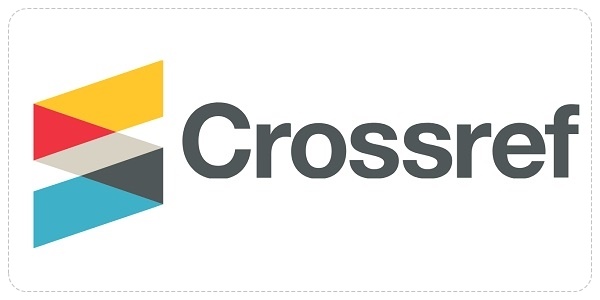Basic Skill Orientation, Mobility, Social and Communication Basic Skill Program Empowered by Family to Improve Blind People Independent
Abstract
Full Text:
PDFReferences
Boli, P. K. (2021). Problematika orang tua pada era pandemi covid-19 yang memiliki anak berkebutuhan khusus tunanetra Di Sekolah Luar Biasa Negeri 1 Bantul. Jurnal Pendidikan dan Konseling (JPDK), 4(2), 304-309.
Brambring, M. (2007). Divergent development of manual skills in children who are blind or sighted. Journal of Visual Impairment & Blindness, 101(4), 212-225.
Bronfenbrenner, U. (1981). The ecology of human development: Experiment by nature and design. USA: Harvard University Press.
Brouwer, D. M., Sadlo, G., Winding, K., & Hanneman, M. I. (2008). Limitations in mobility: Experiences of Visually impaired older people. British Journal of Occupational Therapy, 71(10), 414 - 421.
Bruder, M. B. (2001). Infants and toddlers: Outcomes and ecology. In M. J. Guralnick (Ed.), Early childhood inclusion: Focus on change (pp. 203-228). Baltimore: Brookes.
Burhaein, E. (2019). Pembelajaran dalam Pandemi COVID-19: Mengapa pendidikan jasmani adaptif penting untuk siswa disabilitas di sekolah luar biasa. Disrupsi Strategi Pembelajaran Olahraga: Serta Tantangan dalam Menghadapi New Normal selama masapandemi Covid, 19, 187-196.
Christiani, J. (2017). Fungsi ansambel perkusi ritmis dalam interaksi sosial pada anak tuna netra studi kasus: SLB N 1 Bantul (Doctoral dissertation, Institut Seni Indonesia Yogyakarta).
Cutter, J. (2007). Independent Movement and Travel in Blind Children: A Promotion Model. USA: Information Age Publishing.
Dunst, C. J., Trivette, C. M., & Hamby, D. W. (2007). Metaanalysis of family centered helpgiving practices research. Mental Retardation and Developmental Disabilities Research Reviews, 13(4), 370-378.
Dunst, C. J., Bruder, M. B., & Espe-Sherwindt, M. (2014). Family capacity-building in early childhood intervention: Do context and setting matter?. School Community Journal, 24(1), 37-48.
Efflamengo, L., & Asyrofi, S. (2019). Analisis faktor kesulitan belajar bahasa arab pada siswa tunanetra di MAN 2 Sleman. EDULAB: Majalah Ilmiah Laboratorium Pendidikan, 4(2). 43- 58.
Fazzi, E., Signorini, S., Bova, S., Ondei, P., & Bianchi, E. (2005). Early intervention in visually impaired children. In International Congress Series; Elsevier, Vol. 1282, 117-121.
Hidayat, A. L. (2021). Peran komunikasi keluarga dalam kemandirian anak berkebutuhan khusus tuna grahita di Yayasan Rumah Bersama. MEDIALOG: Jurnal Ilmu Komunikasi, 4(1), 110-121.
Kahn, R., Stemler, S., & Berchin-Weiss, J. (2009). Enhancing parent participation in early intervention through tools that support mediated learning. Journal of Cognitive Education and Psychology, 8(3), 269-287.
McNear, D. (2002). When you have a visually impaired student in your classroom: A guide for teacher. USA: AFB Press.
McWilliam, R. A. (2010). Working with families of young children with special needs. New York: The Guilford Press.
Newman, S. (2008). Small steps forward; Using games and activities to help your pre-school child with special needs 2nd edition. London: Jessica Kingsley.
Nisa, K., Mambela, S., & Badiah, L. I. (2018). Karakteristik dan kebutuhan anak berkebutuhan khusus. Jurnal Abadimas Adi Buana, 2(1), 33-40.
Pioh, E. Y., Kandowangko, N., & Lasut, J. J. (2017). Peran pengasuh dalam meningkatkan kemandirian anak disabilitas netra di Panti Sosial Bartemeus Manado. Acta Diurna Komunikasi, 6(1).
Rani, K., & Jauhari, M. N. (2018). Keterlibatan orangtua dalam penanganan anak berkebutuhan khusus. Jurnal Abadimas Adi Buana, 2(1), 55-64.
Salleh, N. M., & Zainal, K. (2010). How and why the visually impaired students socially behave the why they do. Procedia Social and Behavioral Sciences, 9(2010), 859-863.
Tanjung, B. S., & Megaiswari, M. (2019). Dukungan orangtua terhadap prestasi anak tunanetra di Sekolah Inklusi. Jurnal Penelitian Pendidikan Khusus, 7(2), 73-77.
Umam, Q. (2020). Pemenuhan hak anak difabel dalam keluarga perspektif Undang-Undang No. 35 Tahun 2014 tentang Perlindungan Anak: Studi di Kecamatan Bumiaji Kota Batu (Doctoral dissertation, Universitas Islam Negeri Maulana Malik Ibrahim).
Wardani, I. G., Tarsidi, D., Hernawati, T., & Astati. (2014). Pengantar pendidikan anak berkebutuhan khusus. Tanggerang Selatan: Universitas Terbuka.
Wiener, W. R., Welsh, R. L., & Blasch, B. B. (2010). Foundation of orientation and mobility, 3rd Edition. New York: AFB Press.
DOI: https://doi.org/10.17509/pdgia.v20i1.37369
Refbacks
- There are currently no refbacks.
INDEXED BY

This work is licensed under a Creative Commons Attribution-ShareAlike 4.0 International License















